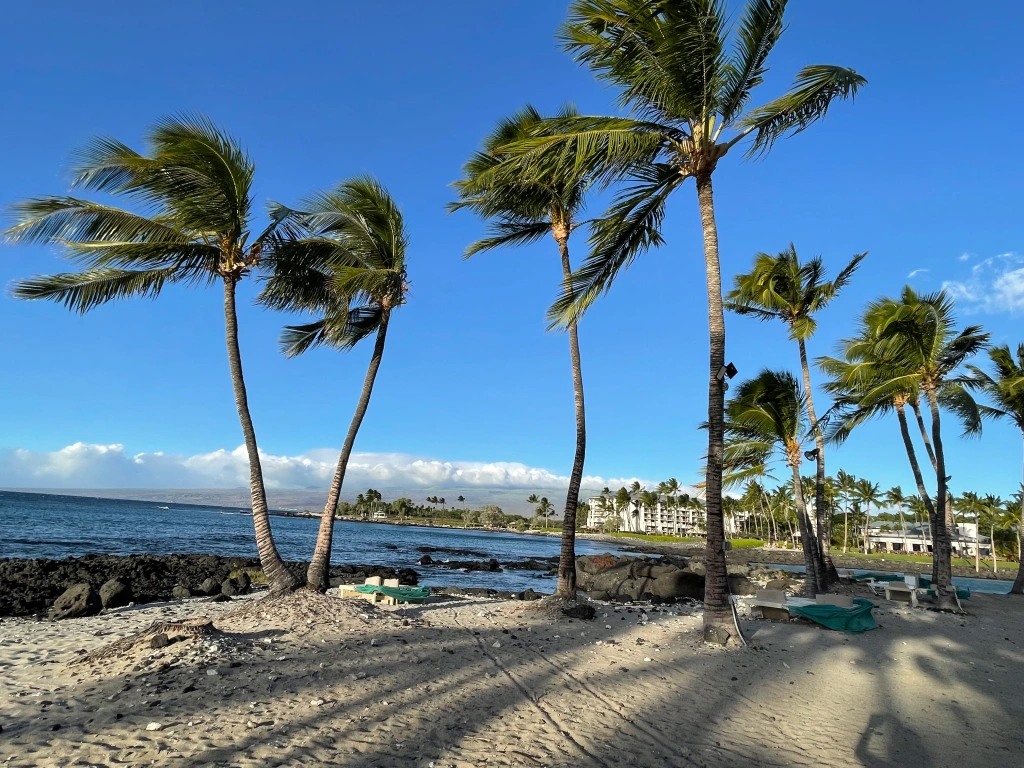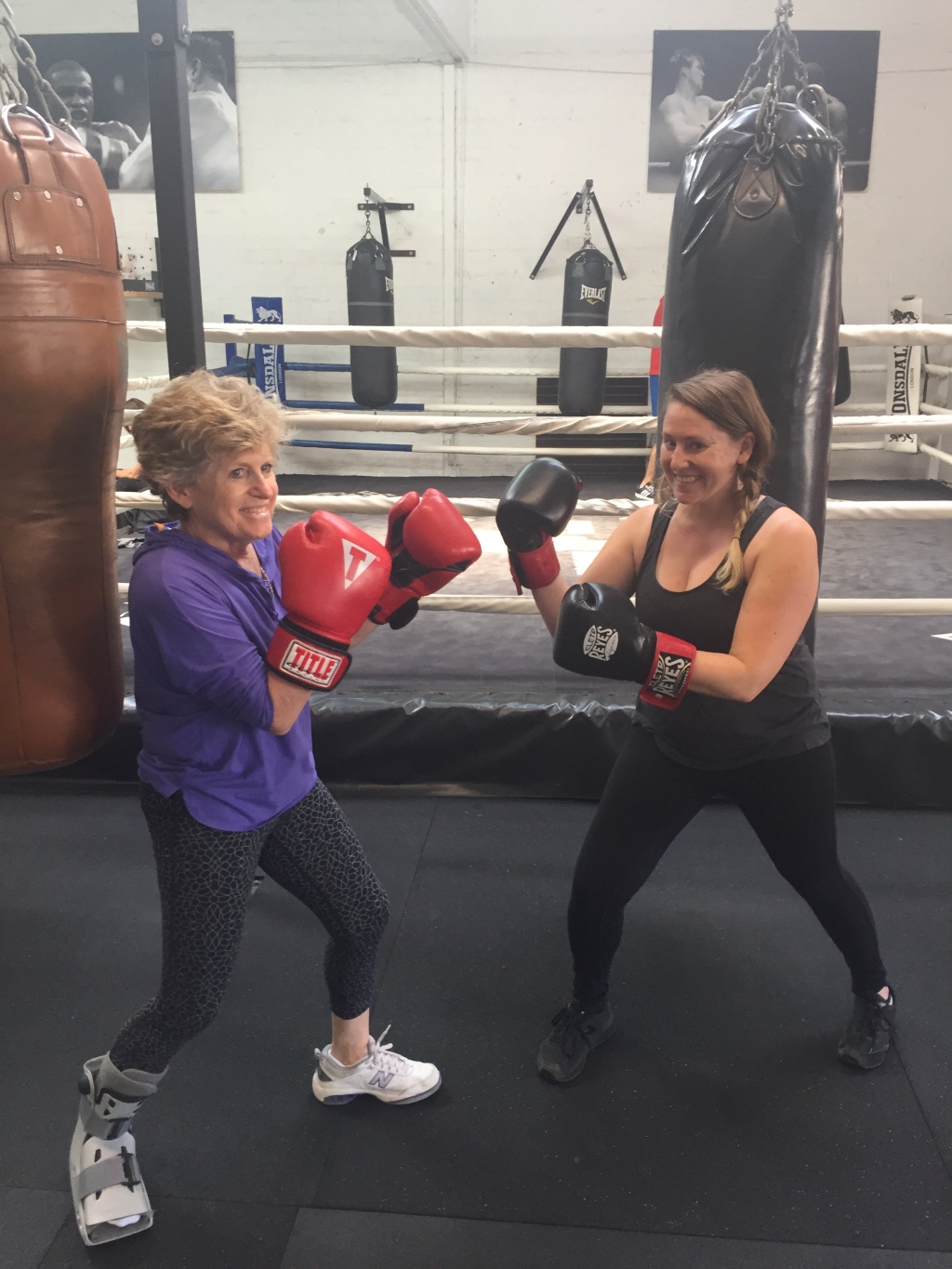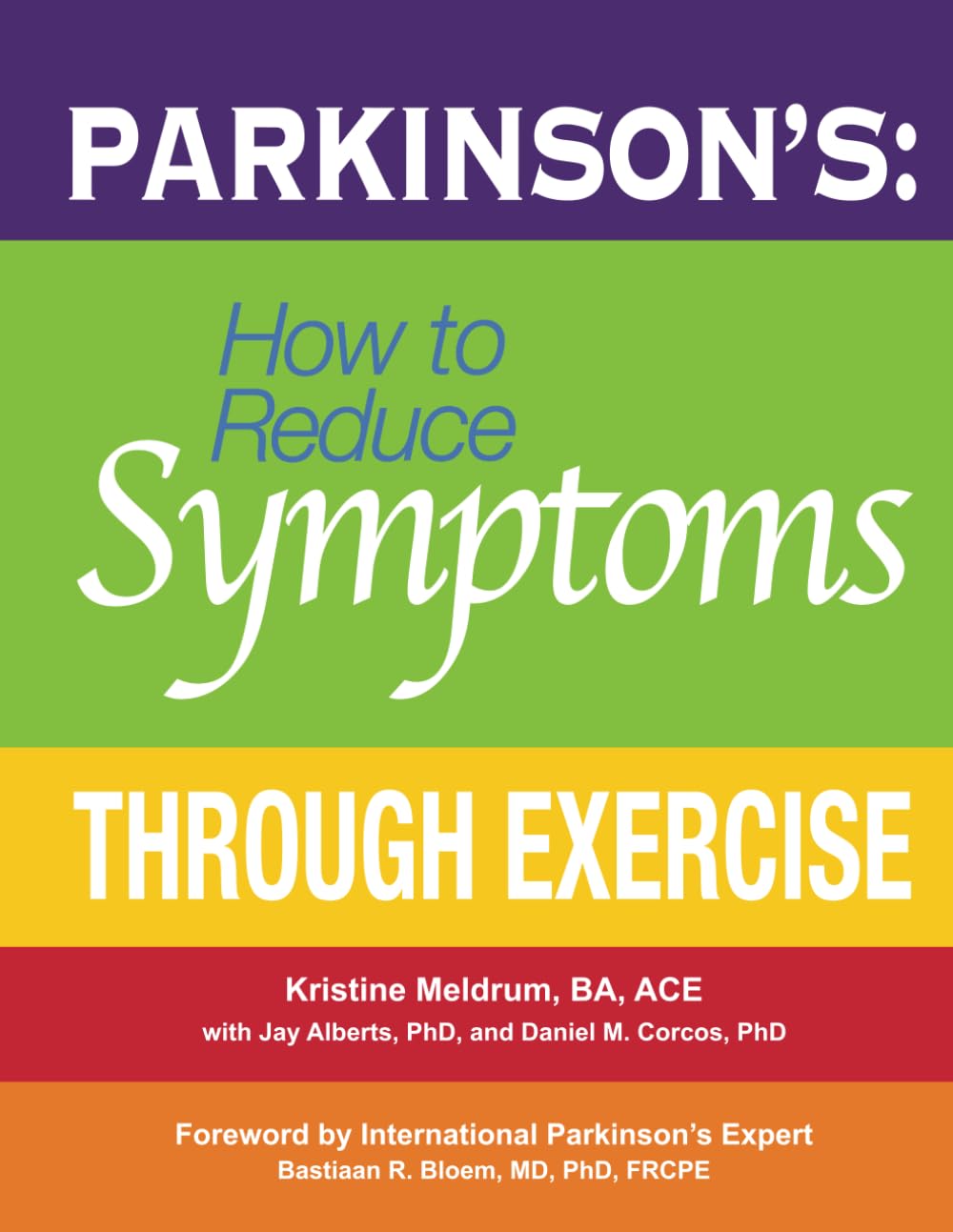I have been practicing yoga for about 8 years and it has really helped me to maintain my balance and flexibility. While I attend regular yoga classes, there are many classes in the area for people with less mobility, including chair yoga. Check with your local yoga studio to see if they have classes for special needs. If they do not, they can often help you find the right place for you. Find the type of yoga class that works best for you and try it for a few months. Start slowly. We Parkies often try to do more that we are capable of, which can result in falls and injuries. A few private sessions with a Yoga instructor who has experience working with people with PD or other chronic illnesses can help you develop a safe yoga practice that you can follow either at home or in a group class.. And do not skip Shavasana, the final relaxation pose, otherwise known as Corpse Pose. It is an important part of the meditation practice that we all need to calm our PD symptoms. Before I started taking meds for my tremors, I would find that during that last relaxation pose, my tremors would just disappear, often lasting long past the end of class. What a wonderul feeling!
Some days I drag myself to yoga class, thinking that maybe I will stay only a few minutes. Occasionally I do leave early if I am really having a difficut PD day. But most of the time, I slog through it, only to find that I feel 150% better by the time class is over. And even on my worst days when my balance is not that great, I see that there are others having the same problems. And they don’t even have PD!
Try Yoga. I guarantee that it will make a difference in your life.
The following article from the Michael J Fox Foundation says it better than I can. But I know from experience that it really works.
FoxFeed Blog
Yoga for Parkinson’s: What the Research Says
Posted by Kaitlyn P. Roland, July 01, 2015

Kaitlyn P. Roland completed her PhD research at the University of British Columbia (2012), which measured Parkinson’s disease (PD)-related changes to daily muscle activity and consequences for physical function and frailty. She is currently a postdoctoral fellow at the University of Victoria¹s Centre on Aging and her most recent work examines care needs and well-being in PD dementia caregivers. Kaitlyn offers yoga workshops to persons with PD called “Yogadopa” and blogs about Parkinson’s, aging and yoga-related information at http://yogadopa.com. Overall, she aims to support independent living, and reduce distress and healthcare utilization in persons with PD, dementia and their caregivers.
Yoga continues to rise in popularity and is cited as a favorite non-medical therapy by many living with Parkinson’s disease. Getting started can seem challenging, as it is often portrayed with pretzel-like contortions and trendy #yogaselfies on social media. But, yoga is an adaptable practice, with both functional and psychosocial benefits, that can be suited to a variety of abilities.
Yoga has become synonymous with holding and moving between a series of static postures (called asanas); however, this physical practice (called hatha yoga) is only one part of the larger yoga framework that includes branches such as philosophy, chanting and selfless service. Hatha yoga combines physical postures to address strength, flexibility, balance and mind-body-breath connection. Breathing practices (pranayama) and meditation are included to develop greater self-awareness.
What do we know about yoga for people with Parkinson’s?
In looking through the scientific literature, there are a few studies that support hatha yoga for persons with PD. This is clearly an area of research that is just starting to gain ground. What studies do exist suggest modest benefits for:
Mobility. The issue of mobility has important implications for falls in PD. Yoga participation can improve functional mobility and how a person with PD walks. Standing yoga poses target the hip extensor, knee extensor and ankle plantar flexor, which support center-of-mass during walking and may improve overall stability.
Balance. Balance training is an important component of PD therapy, as 40 percent of nursing home admissions are preceded by a fall. Research shows yoga-related improvements in balance (tandem, one-leg) and an associated reduction in fear of falling; this can also help keep people with PD active in their community.
Strength. Gains in lower-body strength occur for PD patients following yoga practice and are associated with improved postural stability. Yoga requires isometric contraction (i.e., the joint angle and muscle length do not change) of specific muscle groups to stabilize the body as one performs the postures, and may mimic isokinetic contractions (i.e., variable resistance to a movement performed at constant speed) when performing controlled systematic movements from one pose to the next. These mechanisms may be the reason why yoga improves muscular strength.
Flexibility. Improvements in flexibility and range of motion (ROM) are important since rigidity is a common clinical manifestation in PD. Research shows improvements in flexibility/ROM of the shoulder, hip and spine. Stooped posture is characteristic in PD and can be related to short spinal flexors and weak spinal extensors; improved shoulder and spinal flexibility from yoga supports a more upright posture. Greater hip mobility from yoga may translate into improvements in shuffling gait experienced by many living with PD.
Mood & Sleep. The psychosocial benefits associated with yoga are important for disease management, as they are not often addressed with conventional dopaminergic therapy. Yoga can offer group support, improved confidence and self-efficacy. The calming effect of yoga (by enhancing parasympathetic output) may lessen perceived stress, enhance relaxation, and benefit sleep in PD.










Leave a reply to skrischer Cancel reply